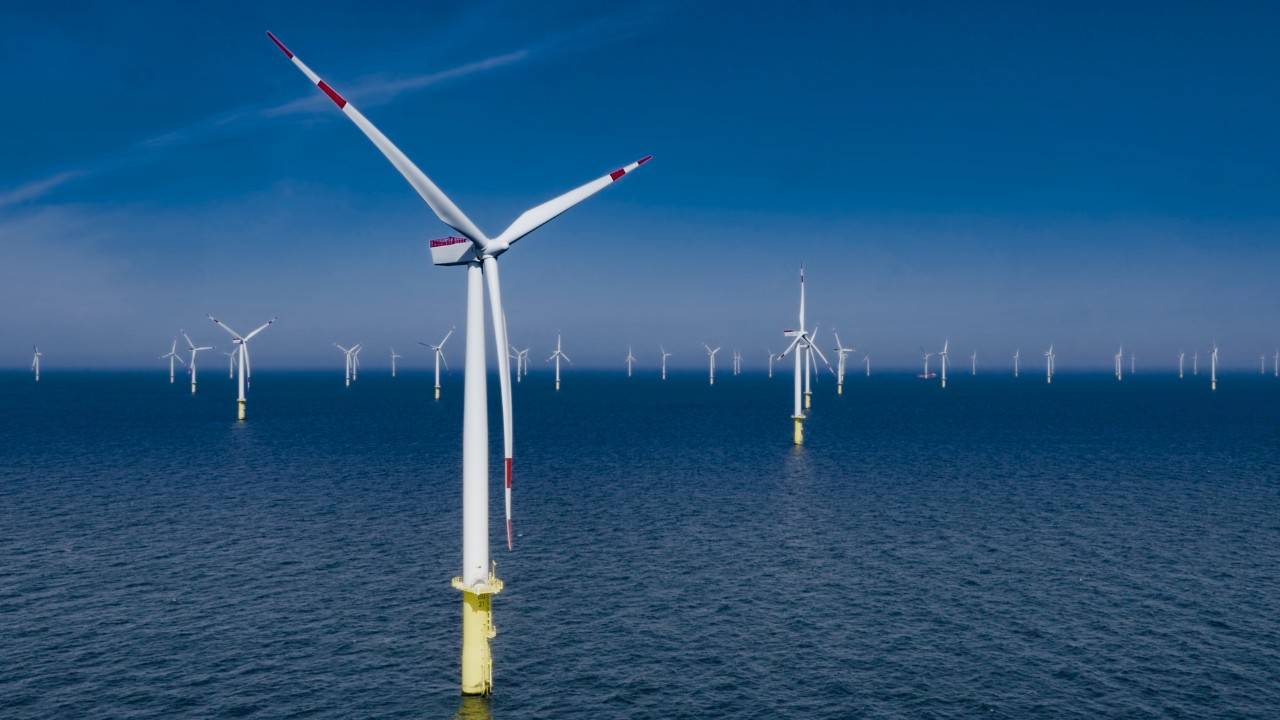In a significant stride towards renewable energy, Norway has unveiled the “world’s largest floating offshore wind farm.” Crown Prince Haakon of Norway marked the official opening of this groundbreaking project, which has been years in the making.
Situated about 140 kilometers off the Norwegian coast, the Hywind Tampen wind farm floats in waters between 260 and 300 meters deep. It houses 11 turbines that began generating power in November 2022 and reached full operational status this month. The facility not only harnesses wind, a renewable energy source, but also aids in powering oil and gas fields, aiming to reduce their carbon dioxide emissions.
Norwegian energy company Equinor revealed, “Hywind Tampen has a system capacity of 88 MW and is expected to cover about 35 per cent of the annual need for electricity on the five platforms Snorre A and B and Gullfaks A, B and C.”
Unlike traditional offshore wind turbines that are fixed to the seabed, floating turbines can be installed in much deeper waters, offering a significant advantage. This innovation comes as many companies and countries, including the U.S., are setting ambitious goals to increase floating wind installations.According to CNBC,
Equinor, which has a substantial presence in the fossil fuel industry, described the turbines at Hywind Tampen as being “mounted on floating concrete structures with a common anchoring system.” The project is a collaborative effort involving several partners, including Vår Energi and Wintershall Dea.
Reflecting on this milestone, Equinor’s Siri Kindem stated, “With Hywind Tampen, we have shown that we can plan, build and commission a large, floating offshore wind farm in the North Sea.” She emphasized the learning curve involved, adding, “We will use the experience and learning from this project to become even better. We will build bigger, reduce costs and build a new industry on the shoulders of the oil and gas industry.”
However, the initiative has sparked a debate, given its role in powering the fossil fuel industry, a significant contributor to climate change. The United Nations has highlighted the adverse environmental impacts of burning fossil fuels, which have been the primary driver of climate change since the 19th century.
As the world grapples with the urgent need to mitigate climate change, the UN Secretary-General Antonio Guterres warned, “We are in the fight of our lives, and we are losing. Greenhouse gas emissions keep growing, global temperatures keep rising, and our planet is fast approaching tipping points that will make climate chaos irreversible.”
This development marks a pivotal moment in the renewable energy sector, showcasing a sustainable path forward while also igniting discussions on the environmental implications of supporting the fossil fuel industry.
More inspiring green news similar to this:

